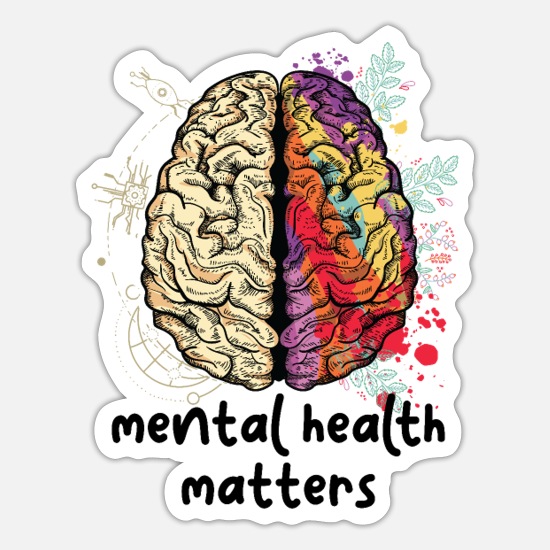>Addiction is a complex and multifaceted issue that affects millions of people worldwide. It doesn’t discriminate based on age, gender, or socioeconomic status, making it a pervasive challenge across all walks of life. While addiction often begins with a physical or psychological dependence on substances such as drugs or alcohol, it quickly becomes intertwined with mental health, creating a vicious cycle that can be difficult to break. The journey to recovery from addiction is not just about overcoming the physical dependence; it’s about addressing the mental health challenges that accompany it. This article explores the mental health journey to recovery, emphasizing the importance of comprehensive care that addresses both the mind and body.
Understanding the Link Between Addiction and Mental Health
Addiction and mental health are closely linked, with one often exacerbating the other. Many individuals struggling with addiction also suffer from mental health disorders such as depression, anxiety, or post-traumatic stress disorder (PTSD). This co-occurrence is known as a dual diagnosis or co-occurring disorder, and it can complicate the recovery process.
Mental health disorders can lead to substance abuse as a form of self-medication. For example, someone with anxiety might turn to alcohol to calm their nerves, or an individual with depression might use drugs to escape feelings of hopelessness. However, this self-medication is a temporary fix that often leads to addiction, creating a new set of problems on top of the existing mental health issues. Conversely, substance abuse can trigger or worsen mental health disorders, leading to a cycle of dependence that is difficult to escape without professional intervention.
The Role of Mental Health in Addiction Recovery
Mental health plays a crucial role in addiction recovery. Successful recovery involves more than just detoxifying the body from substances; it requires addressing the underlying psychological issues that contribute to addiction. This is where mental health treatment comes into play.
Therapeutic interventions, such as cognitive-behavioral therapy (CBT), are often employed to help individuals identify and change the thought patterns that lead to addictive behaviors. CBT focuses on recognizing triggers, developing coping strategies, and building resilience to prevent relapse. Other therapeutic approaches, such as dialectical behavior therapy (DBT), can also be effective in managing the emotional regulation issues often associated with addiction.
In addition to therapy, medication-assisted treatment (MAT) can be a vital component of recovery. Medications like methadone, buprenorphine, or naltrexone can help manage withdrawal symptoms and reduce cravings, making it easier for individuals to focus on their mental health and recovery process. These medications are often combined with counseling and therapy to address the psychological aspects of addiction.
The Importance of a Support System
Recovery from addiction is not a solitary journey; it requires a strong support system. Family, friends, and support groups play a vital role in providing the emotional and practical support needed during recovery. For many, joining a support group like Alcoholics Anonymous (AA) or Narcotics Anonymous (NA) offers a sense of community and understanding that is crucial for maintaining sobriety.
Support groups provide a safe space to share experiences, challenges, and successes with others who are on the same journey. They also offer accountability, which can be a powerful motivator in the recovery process. In addition to peer support, involving family members in the recovery process can help mend relationships and create a supportive home environment that encourages long-term sobriety.
Addressing Stigma in Addiction and Mental Health
One of the significant barriers to seeking help for addiction and mental health issues is stigma. Society often views addiction as a moral failing rather than a medical condition, which can lead to shame and reluctance to seek treatment. Similarly, mental health issues are frequently misunderstood and stigmatized, making it difficult for individuals to acknowledge their struggles and ask for help.
Breaking down these stigmas is essential for encouraging people to seek the help they need. Public awareness campaigns, education, and open conversations about addiction and mental health can help change perceptions and create a more supportive environment for those in recovery. It’s crucial to recognize that addiction is a disease, not a choice, and that recovery is possible with the right support and treatment.
The Role of Mindfulness and Self-Care in Recovery
Mindfulness and self-care practices are increasingly recognized as valuable tools in addiction recovery. Mindfulness involves being present in the moment and developing an awareness of one’s thoughts, feelings, and bodily sensations without judgment. This practice can help individuals manage stress, reduce anxiety, and increase emotional regulation, all of which are essential for maintaining sobriety.
Incorporating self-care into the recovery process is also vital. Self-care can take many forms, including physical activities like exercise, healthy eating, and sufficient sleep, as well as mental and emotional care, such as meditation, journaling, and engaging in hobbies. These practices help individuals build a healthy lifestyle that supports their recovery and overall well-being.
Long-Term Recovery and Mental Health Maintenance
Recovery from addiction is a lifelong journey that requires ongoing attention to mental health. Even after achieving sobriety, individuals must remain vigilant about managing their mental health to prevent relapse. This might involve continuing therapy, attending support groups, or maintaining medication regimens.
It’s also important to recognize that setbacks are a natural part of the recovery process. Relapse does not mean failure; it’s an opportunity to learn and strengthen one’s commitment to sobriety. By addressing the mental health aspects of addiction and developing a comprehensive plan for long-term recovery. Individuals can achieve lasting sobriety and lead fulfilling lives.
Conclusion
Breaking free from addiction is a challenging but achievable goal. The journey to recovery is not just about overcoming physical dependence on substances. It’s about addressing the mental state challenges that contribute to and result from addiction. By understanding the link between addiction and mental health. Seeking comprehensive treatment.And building a strong support system.Individuals can achieve lasting recovery. Mindfulness, self-care, and ongoing mental state maintenance are essential components of this journey. helping individuals not only recover but thrive in their newfound sobriety.
